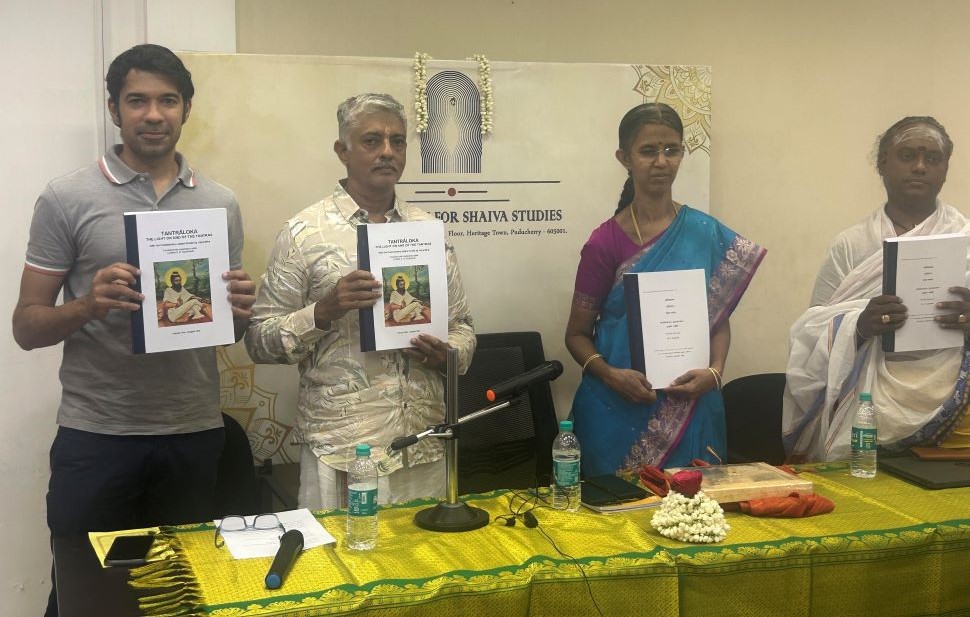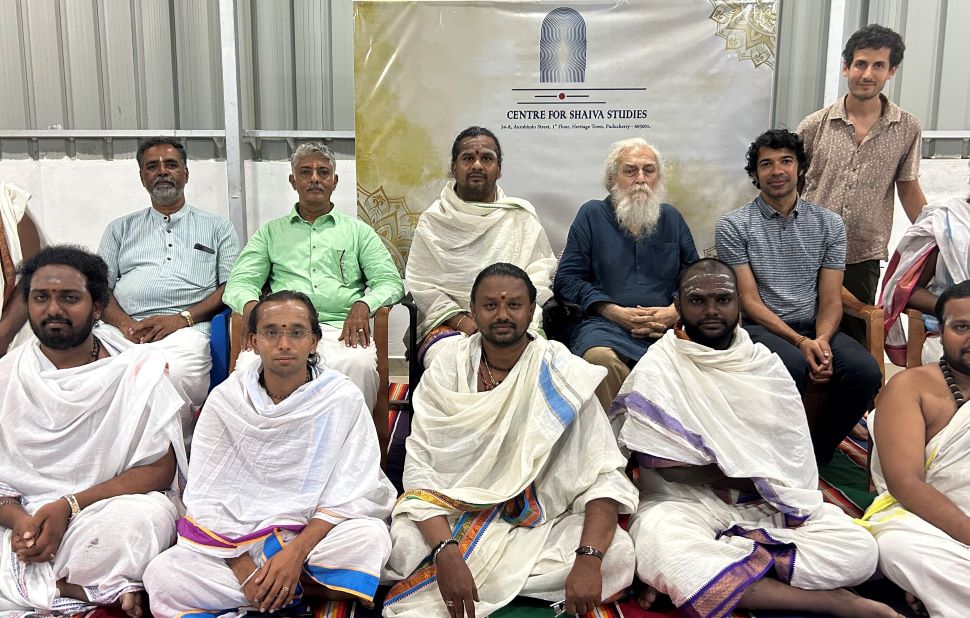From June 2024 to March 2025, the Centre for Shaiva Studies has conducted regular lectures in Tamil on different books from the vast Tirumuṟai corpus of Śaiva literature. Each session explored specific theological, devotional, and philosophical aspects of the tradition, highlighting the richness of Tamil Śaiva thought and expression. Here is the brief snapshot of the lectures conducted during this period:
- The Highest Śivabhakti and other Emotions of the Nāyaṉmār-s
June 2024 | Speaker: T. Ganesan
The Tēvāram and Tiruvācakam are replete with supreme bhakti towards Śiva. Alongside this, they evoke a variety of emotions—humour, self-pride as a devotee of Śiva, the love of a young maiden, and fear—all expressed with vivid intensity. These emotional registers were the focus of the lecture delivered in June 2024. - Śaiva Doctrines in the Hymns of Appar
September 2024 | Speaker: T. Ganesan
The theological insights found in the 4th, 5th, and 6th books of the Tēvāram, composed by the 7th-century Śaiva saint Thiruṉāvukkaracar (commonly known as Appar), were examined in this session, highlighting his contribution to Śaiva doctrine. - Introduction to the Tirumantiram
November 2024 | Speaker: Sri V. Ramanan
The 10th Tirumuṟai, known as the Tirumantiram, is a compendium of around 3,000 verses covering a wide range of topics—mantra-s, rituals, and yogic aspects of Śaivism. This foundational lecture introduced its core themes and was delivered by Sri V. Ramanan, a resident of Chidambaram and longtime scholar of the Tirumuṟai. - Śaiva Concepts in the Tirumantiram
January 2025 | Speaker: Sri V. Ramanan
This follow-up lecture delved deeper into the philosophical and ritual concepts embedded in the Tirumantiram, further elaborating on its unique vision of Śaiva practice and metaphysics. - Introduction to the 11th Tirumuṟai
March 2025 | Speaker: T. Ganesan
The devotional themes expressed in the first two books of the 11th Tirumuṟai—continuing the legacy of Tamil Śaiva literature—were the focus of this concluding session, shedding light on their poetic and theological significance.
We plan to continue such lectures in the upcoming months too.




